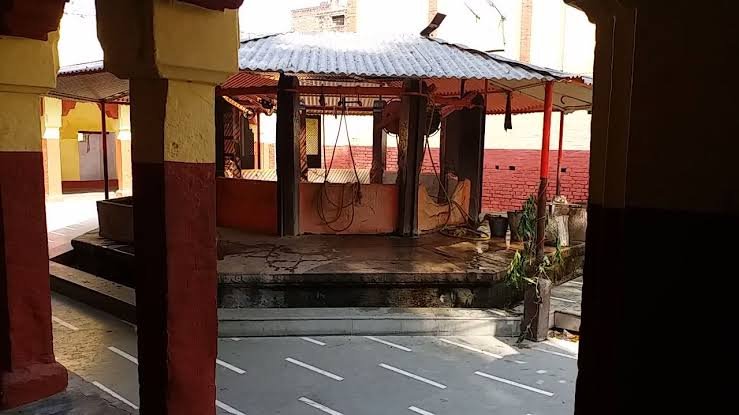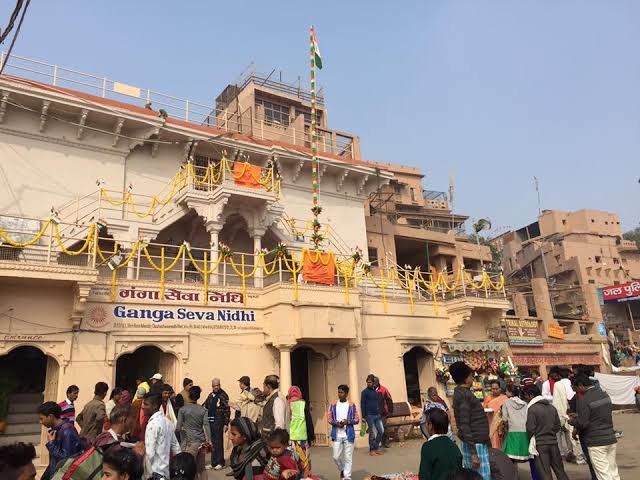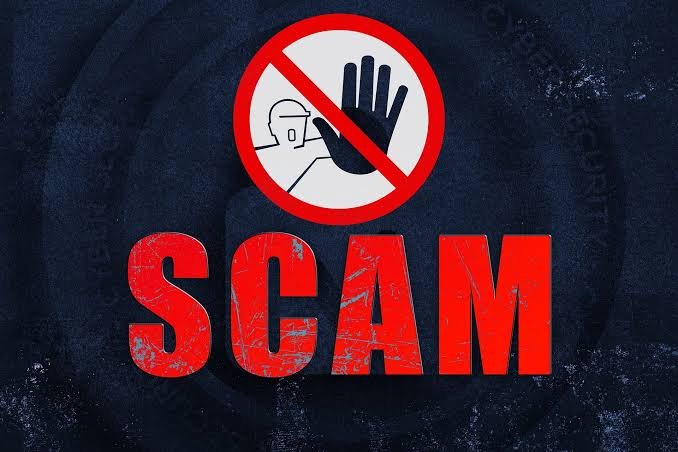In addition to being known as Kashi or Banaras, Varanasi is a city that is steeped in the spiritual history and significance of India. The city of Varanasi is visited by millions of visitors and pilgrims every year due to its status as one of the holiest locations in Hinduism and as one of the oldest cities that has been continuously inhabited in the world. They come to take a dip in the Ganges, to execute funeral rituals for their loved ones, to participate in the venerable Ganga Aarti, and to pay a visit to temples such as the Mahamrityunjaya Temple and the Kashi Vishwanath Temple to pay their respects.
In recent years, an increasing number of fraudulent schemes have been perpetrated online against individuals who are looking for spiritual fulfillment in this ancient city. The term Varanasi, which was formerly associated with chastity and devotion, is currently being exploited by con artists for the purpose of procuring financial gain.

These scams have emerged in many ways, most notably through the selling of Dhanwantari Koop water and fraudulent Ganga Aarti bookings. Unbeknownst to most devotees, these religious activities and offerings are absolutely free at the source. However, scammers have built websites and social media pages, claiming to offer exclusive access to these services for outrageous amounts. This long-form article digs deep into the mechanics of these scams, the strategies adopted by the fraudsters, the impact on devotees and tourists, and the efforts that can be taken to prevent such exploitation.
The Sacred Dhanwantari Koop: A Target for Scammers
The Dhanwantari Koop in the Mahamrityunjaya Temple in Varanasi is supposed to hold miraculous healing abilities. Devotees from all over India visit the temple to drink or gather water from this sacred well, expecting it will heal them of diseases. The water from the Dhanwantari Koop has long been connected with Ayurvedic medicine, and it is distributed for free to those who visit the temple. However, scammers have converted this gesture of devotion into a commercial business, selling the water online for ₹600 per liter.
Origins of the Scam
This hoax dates back to 2019 when a Facebook page named “Shivaya” was founded. The Facebook began publishing photographs and videos of the Mahamrityunjaya Temple, notably highlighting the Dhanwantari Koop. Using these photographs, the page claimed that the water from the Koop could treat life-threatening diseases including as cancer, brain tumors, diabetes, and digestive issues. To make the scam even more convincing, the scammers built up a bogus website where people could purchase the water. They also gave a contact number for appointments, and over time, thousands of individuals were misled into obtaining the water online.
The fake website stated that the Dhanwantari Koop water had already helped over 10 lakh customers. Every hour, the site promised that roughly 100 new bookings were being made. Such data and testimonials appeared persuasive to the typical devotee, many of whom were desperate to find a treatment for their afflictions. As a result, people from across India, including states like Uttar Pradesh, Bihar, West Bengal, Madhya Pradesh, Odisha, and even parts of South India, fell prey to the fraud.
False Claims of Healing
The crooks behind this hoax took advantage of people’s faith and weakness. They made baseless claims that drinking the water might treat a range of severe ailments. One victim, Navodeep from Assam’s Goalpara district, told his ordeal after ordering two bottles of Dhanwantari Koop water for ₹300 each. He had been suffering with tonsillitis for some time and, after hearing about the amazing capabilities of the water, decided to give it a try. Unfortunately, after swallowing the water, Navodeep received no alleviation and recognized he had been deceived.
While stories like Navodeep’s are increasingly surfacing, many victims remain mute, either too ashamed to come forward or hesitant to realize they have been deceived. This has allowed the hoax to continue for several years, with numerous others falling prey to the false website.
Mahamrityunjaya Temple Authorities React
When the news of the swindle reached the Mahamrityunjaya Temple, the temple administrators were horrified and enraged. Kameshwar Dixit, the Mahant (head priest) of the temple, explained that the water from the Dhanwantari Koop is absolutely free. It has always been offered freely to devotees who visit the temple, and there has never been any charge linked with it. He was unaware that a bunch of fraudsters had been benefitting from this hallowed sacrifice, exploiting the temple’s name and reputation to defraud visitors.
The temple administrators have already published a statement urging devotees not to fall for similar scams. They highlighted that all temple functions, including the distribution of Dhanwantari Koop water, are free and will always remain so. Despite this, the hoax continues to thrive online, with scammers making new claims and launching more false websites to target unwary victims.
The Expanding Network of Scammers
What makes this scam particularly concerning is its reach. The fake network selling Dhanwantari Koop water reaches far beyond Varanasi. Orders are being delivered from West Bengal’s 24 Parganas area, and the scam has reached states like Bihar, West Bengal, Odisha, Madhya Pradesh, and even some portions of South India. This extensive geographical distribution implies that the fraud is not being handled by a small group of individuals but rather by an organized network of crooks who have found a rich opportunity in exploiting people’s trust.

This swindle has likely produced millions of rupees for the perpetrators. With each bottle of water being sold for ₹300 to ₹600, and thousands of people ordering it regularly, the financial advantage for the scammers is huge. Moreover, by making misleading promises about the water’s curative capabilities, the scammers are preying on the desperation of those suffering from serious ailments, many of whom may have exhausted established medical treatments and are seeking alternative therapies.
The Ganga Aarti Scam: Turning a Sacred Ritual into a Business
While the selling of Dhanwantari Koop water is very upsetting, it is not the only swindle abusing Varanasi’s spiritual value. Another significant swindle targeting both domestic and foreign tourists revolves around the world-famous Ganga Aarti.
The Ganga Aarti, done every evening at the Dashashwamedh Ghat, is one of the most awe-inspiring spiritual experiences in India. The sight of priests performing the Aarti with big brass lamps while reciting sacred hymns and offering prayers to the river is an experience loved by millions of visitors each year. What makes the Ganga Aarti even more special is that it is free for everybody to observe. People assemble along the ghats, or on boats floating on the Ganges, to watch the ceremony unfold.
However, in recent years, scammers have discovered a way to exploit this spiritual occasion, charging naïve travelers for something that is meant to be free.
Fake VIP Bookings for the Ganga Aarti
Tourists, particularly those unfamiliar with Varanasi, regularly look online for ways to acquire a good view of the Ganga Aarti. Scammers have taken advantage of this by setting up phony websites and apps advertising “VIP seats” and “special packages” for the Aarti. Websites like “Kashi Archanam” and “Viator” charge between ₹2100 and ₹4200 for these bogus bookings, claiming to offer privileged seating arrangements and other amenities such as Prasad (holy offering).
Tourists who fell for these scams sometimes order the tickets online before arriving in Varanasi. However, upon reaching the Dashashwamedh Ghat, they are left dissatisfied. Either they find that the so-called VIP seats do not exist, or they are directed to obscure spots far away from the main Aarti event. In some situations, the scammers quit accepting phone calls once the payment has been paid, leaving the travelers stranded.
Different Locations, Same Scam
In several occasions, travelers have reported being taken to different venues for the Aarti. Instead of being sat at the Dashashwamedh Ghat, they are transported to smaller, lesser-known ghats where other renditions of the Ganga Aarti are conducted. While these Aartis are still spiritual experiences, they are not the spectacular event that people expect when they acquire tickets for the Dashashwamedh Ghat Aarti.
This has led to increased frustration among tourists, many of whom feel cheated out of their money and the experience they were promised. The bogus websites and applications enabling these bookings continue to operate, and new platforms often sprout up, making it difficult for police to track them all.
Ganga Seva Nidhi’s Response
The Ganga Seva Nidhi, the group responsible for conducting the Ganga Aarti at Dashashwamedh Ghat, has taken a hard stand against these fraudulent operations. Sujeet Mishra, the head of the organization, verified that the Aarti is fully free and that there are no VIP seats or special packages available for purchase. Seating at the Aarti follows a “first come, first served” basis, with 800 chairs put up for the public every day. Additionally, thousands of people stand along the ghats or observe the ritual from boats on the river.

Mishra urged travelers not to trust any websites or apps offering paid tickets for the Ganga Aarti. He also indicated that legal action is being taken against some of the fraudulent sites, and the group is working with local authorities to crack down on the scammers.
Despite these attempts, the scams persist, largely owing to
the anonymity and reach of the internet. Scammers can quickly build up new websites or social media profiles under other names, making it harder to trace them down and hold them accountable.
The Broader Impact of Online Scams on Varanasi’s Tourism
The increasing frequency of internet frauds relating to Varanasi’s religious rituals and spiritual offerings poses a severe danger to the city’s tourism business. Varanasi attracts millions of pilgrims and tourists each year, many of whom come to experience the city’s unique blend of spirituality, history, and culture. If these scams continue to grow, they could harm Varanasi’s reputation as a sacred city, leading to a fall in visitor numbers.
Tourists and devotees who fall victim to these frauds are typically left feeling dissatisfied and duped. For many, a visit to Varanasi is a once-in-a-lifetime event, and having that trip tarnished by unscrupulous activities can leave a lasting unpleasant impression. Word of mouth and online reviews play a crucial influence in molding people’s travel decisions, and if more tourists report being cheated in Varanasi, others may choose to avoid the city altogether.
Furthermore, these scams harm the name of the real spiritual institutions and services in Varanasi. Temples like the Mahamrityunjaya Temple and organizations like the Ganga Seva Nidhi work tirelessly to deliver free services to devotees and protect the integrity of Varanasi’s spiritual legacy. However, their efforts are being hampered by scammers who are more interested in making a quick buck than in respecting the city’s holy significance.
Preventing Online Scams: What Can Be Done?
Addressing the issue of online frauds in Varanasi involves a multi-faceted approach involving law enforcement, municipal officials, temple organizations, and the public.
Strengthening Online Security
First and foremost, there has to be stronger internet security measures to prevent scammers from creating phony websites and social media pages. Platforms such as Facebook, Instagram, and Google need to take a more aggressive approach in monitoring and shutting down pages and websites that participate in fraudulent activity. This involves instituting stronger verification measures for businesses and religious organizations that claim to offer spiritual services.
Local officials in Varanasi should also work closely with cybercrime teams to track down and apprehend the culprits behind these scams. While the anonymity of the internet makes it difficult to catch every fraudster, targeted investigations against the largest and most prominent fraud networks can make a substantial impact.
Educating the Public
Public knowledge is another crucial component in stopping these scams. Tourists and devotees need to be educated about the free nature of most religious ceremonies in Varanasi. Temples, ashrams, and spiritual groups should make it known on their official websites and social media pages that services such as Dhanwantari Koop water and the Ganga Aarti are free and open to everybody.
Additionally, local tour operators and travel agencies should notify their consumers about the scams and advise them to book services exclusively through verified channels. Tourist information centers in Varanasi can also play a role in providing this information to guests as soon as they arrive in the city.
Legal Action Against Scammers
Finally, legal action needs to be taken against the persons and organizations executing these scams. While some fraudsters may be headquartered in Varanasi or even beyond India, those who are found should face substantial repercussions for their acts. This will not only serve as a deterrent to others but also demonstrate that the authorities are serious about protecting Varanasi’s reputation and the rights of its visitors.

Conclusion
The online scams abusing Varanasi’s spiritual significance are a disturbing trend that undermines both the city’s religious institutions and its tourism business. From the selling of Dhanwantari Koop water to false VIP appointments for the Ganga Aarti, fraudsters are finding increasingly creative ways to prey on the faith and confidence of devotees and tourists alike.
However, with greater knowledge, stronger online security measures, and focused legal action, these scams can be curtailed. Varanasi has long been a beacon of spirituality and devotion, and it is up to all stakeholders—temple officials, law enforcement, and the public—to ensure that its reputation stays untarnished by anyone attempting to profit from its hallowed history.







